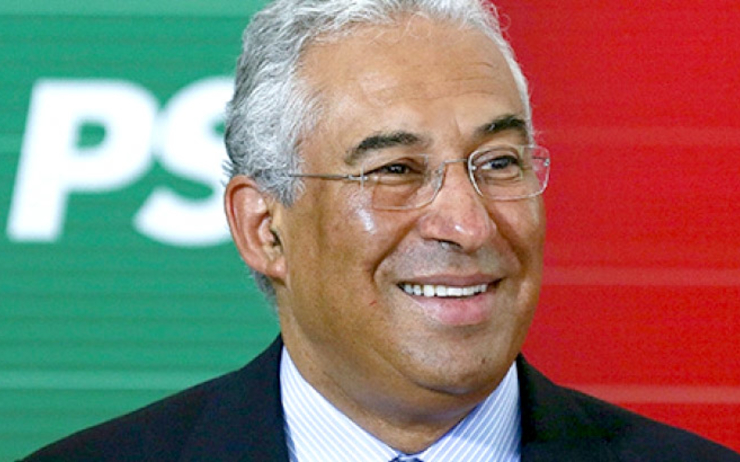
The Portuguese Socialist Party and its current Prime Minister, Antonio Costa, have just won the early legislative elections with an absolute majority. A vote has been announced very soon. Last November, the Portuguese government, and thus the Socialist Party, went through an unprecedented crisis, and for the first time since the end of the dictatorship in 1974, the state budget was not voted on by the Council of the Portuguese Republic. With the left broken, the Right (PSD) seemed well placed to try to restore the government remaining in the hands of the Socialists since 2015.
The results examined: How did the Socialist Party win the 2022 legislative elections by and large?
Opinion polls predicted a fierce battle between the two main parties in the country, the Socialist Party and the PSD. These have been largely rejected since the Socialist Party won 41.7% of the vote (36.3% in 2019), allowing it to obtain an absolute majority for the second time in its history with 117 deputies out of a total of 230. Since 2015, the Socialist Party has been Two other parties on the left, the Communist Party and the Left Bloc (BE), the most extreme, are needed to obtain this absolute majority. These two parties, which consumed this alliance by voting against the state budget in November, saw themselves as being “punished” by the Portuguese electorate, leaving the Socialist Party to rule alone. In fact, the left-wing bloc and the People’s Congress Party (in alliance with the Green Party) lost many voters and thus lost seats in the Council of the Republic, falling respectively from 19 to 5 seats for the BE and 12 to 6 seats for the People’s Congress. These extremely disappointing results for these left-wing parties confirm what a certain number of political observers described as treason during the refusal to approve the state budget. Moreover, compared to the 2019 election results, the Socialist Party would have gained about 380,000 additional votes, while the BE and PCP would have lost about 350,000. And these numbers, which complement each other, show that Portuguese voters stood up to support a note, through a vote that could be described as “useful”.
The Portuguese right split
This landslide victory for the Socialist Party led to a disappointing result for the right-wing PSD, which received “only” 29% of the vote, an increase of 1.2 points compared to 2019, which is still below the expectations of Roi Rio, the party’s president. This particularly mixed result can be explained by the fact that the right was very divided during the elections, with the emergence of parties such as the Liberal Initiative (5%) and Chega, an extreme right-wing party (7.2%)). While both of these parties had only one MP, they now have 8 and 12, respectively. However, Chega, with the third result in this election, has taken an important position for herself in the aftermath of politics in the country.
What are the challenges for the new Portuguese government?
Immediately after his victory, Antonio Costa insisted that the Socialist Party’s victory by an absolute majority should not be confused with the idea of ”absolute power”. The Socialist Party will be able to govern effectively without always seeking a compromise with the radical left, as was the case before. However, Costa still demands “confidence and stability”. Specifically, the Socialist Party benefited from the confidence of the Portuguese during these elections. Indeed, under the mandates of Antonio Costa, Portugal returned to a certain economic boom, with the first budget surplus in particular in the country’s history in 2019. The health crisis management was also one of the strong points of the government, with one of the highest vaccination coverage In the world. And the goal in the near future is certainly to revive the economy of the country stricken by the health crisis, with the help of the European Investment Plan, which Portugal was the first country to submit its file on.
The first important deadline for the government and the Socialist Party is the appointment of the Vice-Presidents of the National Assembly of the Republic. Indeed, the Chega, which is now the third political force in the country, has the de facto right to appoint a vice president, provided that it is approved by a majority of deputies. If Rui Rio (PSD) had already asserted that he would not oppose this appointment, the Socialist deputies would almost certainly have been against it, and there was already a power gap against that possibility.
Finally, the formation of the new government, and thus the composition of the various ministers, should be known in mid-March. Even if Antonio Costa ended all speculation, he hinted that the next government would be “lighter and tighter”, certainly in order to facilitate dialogue and decision-making. Justice Minister Francesa Van Donem will not resume her portfolio in the new government. The former Lisbon socialist, Fernando Medina, approached to restore a ministry.
The year 2021 was marked by municipal elections in September and then the rejection of the state budget in November. Likewise, the health crisis continues to have a great impact on the lives of millions of Portuguese, in the economic, social and even in the areas of freedom. The constitution of this new government should, in principle, allow the country to look to the future with some stability.






